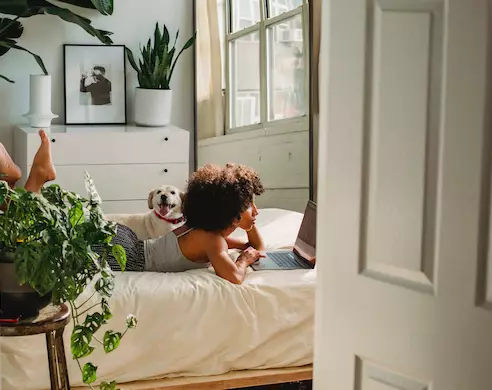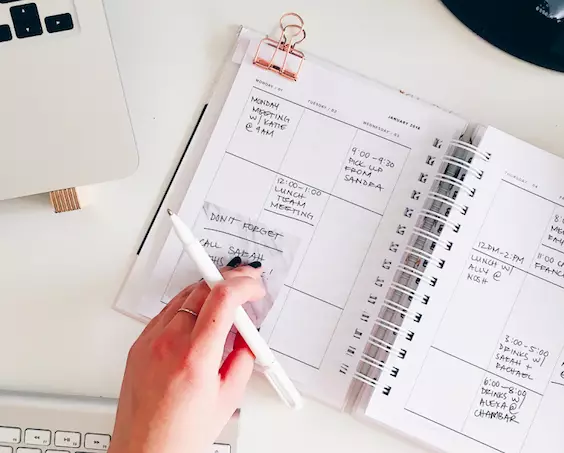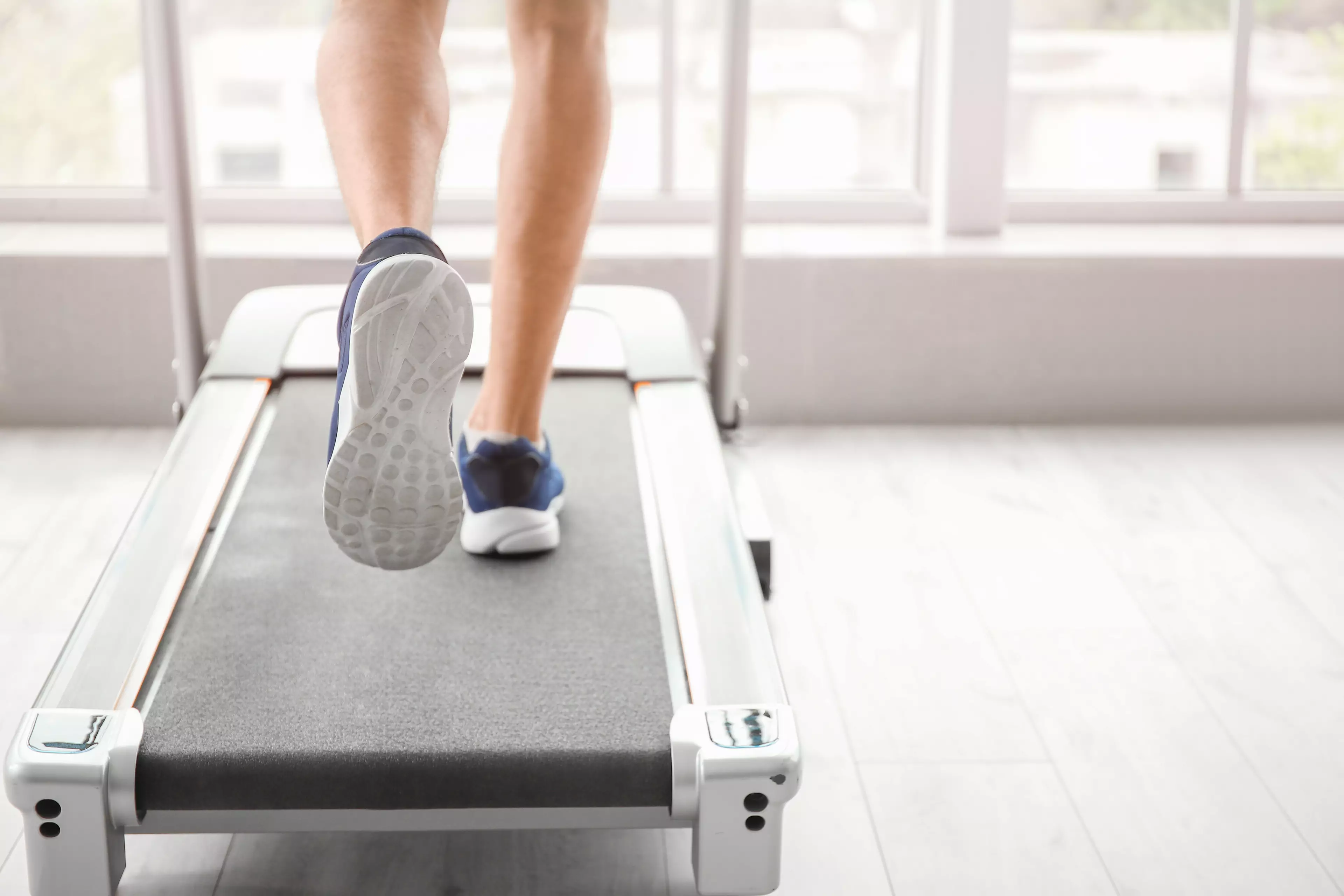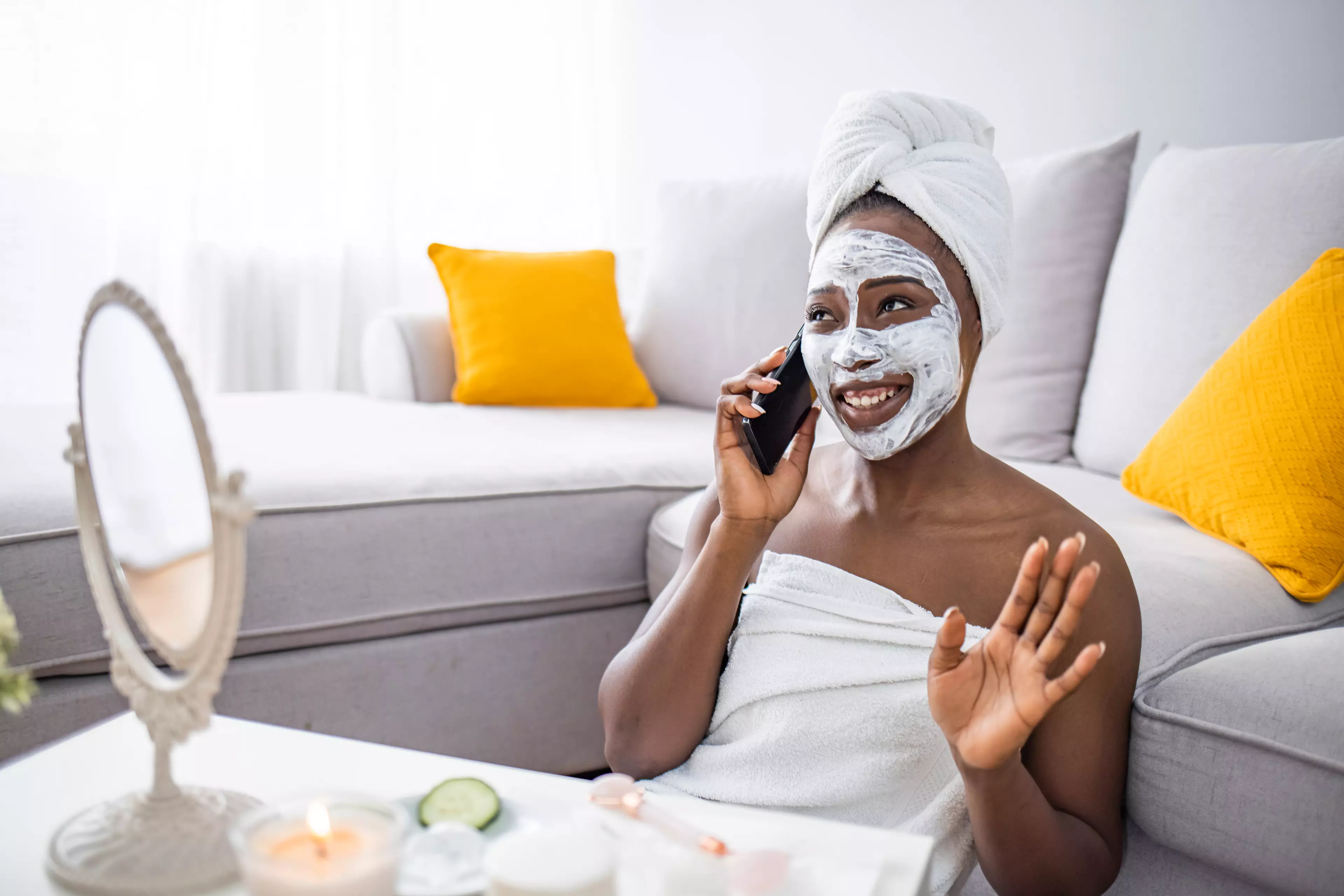
If you'd told me two months ago that I'd be willingly spending post-lockdown Friday nights on my sofa, I would have laughed in your face.
After more than a year of lockdown, the idea of spending a moment longer than I had to inside seemed almost unfathomable.
But as my calendar starts to fill back up again - with social anxiety is rearing its ugly head and the prospect of full-on burnout drawing ever closer - I'm rediscovering the joy of saying no to plans.
Advert
Forget FOMO, it's all about JOSI, aka the Joy Of Staying In.

A poll of Tyla readers found that 70 per cent of us are feeling the burnout after lockdown and confirmed what we've all long-since suspected; people hangovers are real, going into the office is exhausting, and socialising is leaving us feeling more worn out ever before.
It shouldn't be surprising, then, that as a result of this, we're all starting to embrace the Joy Of Staying In.
Advert
As Sophie*, 28, tells me: "I stayed in on Friday, despite the fact that my friends were out, and I actually felt great about it. So, JOSI is definitely something I can relate to.
"I've never been someone who enjoys my own company, and I used to find the prospect of a night in on my own embarrassing.
"But after a year shut inside I feel like that embarrassment is gone. I know my limits now, and it's about living within them".
Melissa* agrees: "I'm loving getting back to normal and finally being able to see friends and family again, but the prospect of such a busy summer feels daunting.

"From now until September, in my circle of friends, we have a wedding, hen do, or birthday almost every weekend, and it's already giving me major anxiety.
Advert
"Having said that, lockdown has given me the confidence to say 'no'; we've all experienced the benefits of staying in more often and putting our mental health first. If there's something I really don't want to do, I no longer feel the pull to do it."
"Under lockdown I said I would never flake on plans again and cherish every experience," another friend, Greta, confesses. "But now I find that I'm weighing things up more - do I want to spend that money, do I have something to wear that will make me feel good in that moment, do I want to expose myself to getting sick?"
Environmental psychologist and founder of Essentialise Wellbeing, Lee Chambers, says it's not surprising that staying in is now more desirable, seeing as we're finally in a place where we can take back control over our lives, and our schedules.
"The ability to control situations with intention is something we lost during the pandemic when we have been locked down," he says.
Advert
"As things open back up, the ability to make an empowered choice to stay in rather than being mandated to, changes the dynamic and [makes staying in] feel like an addition to our lives, where we can see the opportunities and benefits from doing so, rather than feeling like it's a limit being placed upon us."

There are scientific benefits of saying no to plans, too.
"Taking control over your time and selecting where you spend your time can significantly impact your hormonal balance," he goes on. "Your cortisol levels will be reduced, as you will spend less time in situations that generate stress and feeling of hurriedness.
Advert
"This has a knock-on effect on other aspects that impact our hormones, including our sleep, what we consume and our emotional balance.
"Simply slowing down and being selective of where we spend our energy can give us vitality, serenity, and increased happiness and fulfilment."
"Having these periods of reflection helps us to disconnect from stimulation, effectively giving us mental breaks where we have the space to explore aspects such as gratitude, purpose and become more aware of the feedback our bodies are giving us," Lee explains.
"It also provides a space to prioritise self-care, express our emotions healthily and feel more connected to the world around us."
In his book, The Joy Of Missing Out, Danish psychologist Svend Brinkmann also addresses the importance of taking your foot off the gas sometimes, theorising that being busy all the time is like being on a 'hedonistic treadmill'.
This essentially means that we're always craving excess beyond our home lives, and are, as a result, continually dissatisfied and - believe it or not - even more bored with normality the busier we are.

It's a slippery slope. One minute we're craving an invite to the coolest party on a Friday night and next we're upset that we missed out on a dinner invite on a Tuesday.
Before you know it, our diaries are full and yet we're still discontent - and that's where the treadmill metaphor comes into play. We're running and running, concentrating so hard on keeping up the pace that we eventually fly off the back of the machine, crashing and burning, rather than going at our own speed and enjoying the experience.
"Slowing down is powerful because it gives us space to reflect, celebrate small achievements and check in with ourselves to see if we are making meaningful progress in our lives," Lee explains, as he ponders Brinkmann's metaphor.
"Reducing our speed also reduces our outcome obsession, which is often what propels us to travel faster".

That's not to say we should avoid going out altogether; it's more about being conscious of how our mental health triggers have changed, and how multiple days in a row of social exertion might understandably feel foreign to a few of us, right now.
"[Some people] will have a certain rustiness, having not managed our energy in social environments [for a while]," Lee explains. "The impact of this will be higher levels of cognitive fatigue, anxiety and what is being referred to as social burnout."
If you can relate, Lee says that choosing to stay in once in a while is not only essential when it comes to "forming boundaries" and "managing our own energy", but also as a tool to help others understand your limits.
"There is [an] empowered feeling of investing in yourself and putting your needs first, promoting courage in other areas of life," Lee explains. "It also helps you see value in your time, and say yes to what is truly important."
Here are some tips to bare in mind when you think you'd rather stay in.
- Always try and say no when you're in a place of emotional balance.
- Remember, you can't always say yes. It's natural to feel guilty, but your self-care isn't selfish.
- Tell your friends/ family how you feel, and they will connect to those emotions. Be honest and human, and you will feel confident.
- Suggest an alternative that works for you; it's a soft no. Keep it polite but firm to your boundaries.
- Think about the best way to communicate it for that person.
- Be clear on the benefits to you and why you're saying no, and you will have the courage to ensure that no is no
Topics: Mental Health, UOKM8?, Life